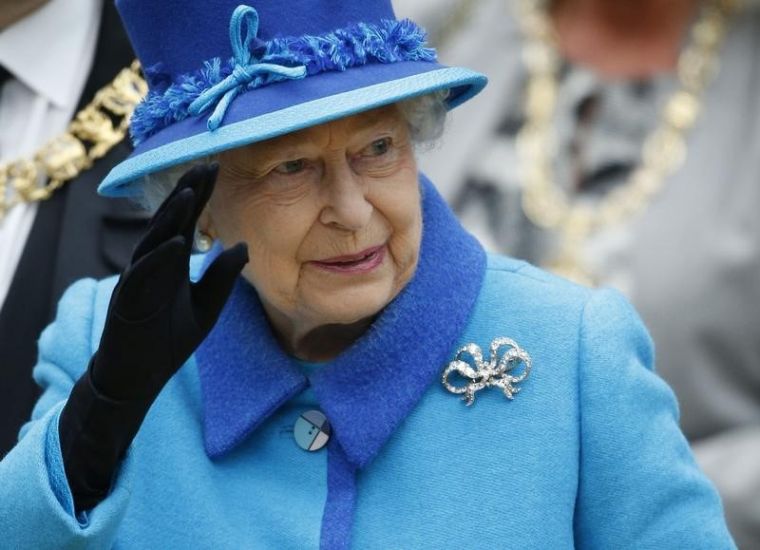Nation honours the Queen as she becomes its longest-reigning monarch

The Queen sealed a special place in the Britain's history by becoming its longest-reigning monarch on Wednesday, but amid warm tributes from politicians and the public, she said the landmark was not something to which she had ever aspired.
Elizabeth, 89, surpasses the 63 years, 7 months, 2 days, 16 hours and 23 minutes that her great-great-grandmother Queen Victoria spent on the throne.
The occasion was marked by cheering, flag-waving crowds on the street, bells ringing out in Westminster Abbey and solemn messages in parliament but Elizabeth, who is also the nation's oldest ever monarch, wanted little fuss.
She made only a brief reference to it in a speech as she opened a new railway line in Scotland.
Thanking the crowd for their welcome, she said: "Many ... have also kindly noted another significance attaching to today, although it is not one to which I have ever aspired.
"Inevitably a long life can pass by many milestones – my own is no exception – but I thank you all and the many others at home and overseas for your touching messages and great kindness."
However, in London, political leaders heaped praise on a head of state who became monarch aged just 25 at a time when Britain was emerging from the ravages of World War Two and has witnessed massive political change, social upheaval and the end of the British empire during her long reign.
"The Queen is our Queen and we could not be more proud of her," Prime Minister David Cameron told parliament in London calling her a "rock of stability". "She has served this country with unfailing grace, dignity and decency and long may she continue to do so."
In central London, the royal barge Gloriana led a flotilla of boats down the River Thames and past a four-gun salute from the battleship HMS Belfast, now permanently moored on the river.
No fuss
Initially Elizabeth did not intend to mark the event publicly at all, believing it represented little more than the fact that her father King George VI died early and that she herself has lived a long time.
But she bowed to public pressure and agreed to officially open the railway in Scotland, where she traditionally spends her Summer holiday. Her second son Prince Andrew said that for her, it would be business as usual.
"It's a milestone in UK terms but as far as her consistency, leadership, it's the normal run of the mill sort of day," he told BBC TV.
"It's an extraordinary achievement in some respects but actually it's about the consistency and the leadership that she is showing and has shown throughout her reign that I think is probably the one thing that marks her out more than anything else," he added.
The admiration was shared by many in the crowd at Edinburgh's Waverley station where she took a journey on a steam train before the opening ceremony, accompanied by husband Prince Philip, who has been at her side throughout her reign.
"It's brilliant," said 58-year-old May Marshall, resplendent in jacket and hat covered in Union Jack flags. "No one else will ever do it. It's testimony to her stamina."
As a young princess, Elizabeth had not expected to become monarch as George VI only took the crown when his elder brother Edward VIII abdicated in 1936 to marry American divorcee Wallis Simpson.
She was 25 when she ascended to the throne on Feb. 6, 1952, following George's death.
That made her the 40th monarch in a royal line that traces its origin back to Norman King William the Conqueror who claimed the throne in 1066 with victory over Anglo-Saxon Harold II at the Battle of Hastings.
The year she became queen, the Korean War was raging, Joseph Stalin was leader of the Soviet Union and Britain announced it had the atom bomb.
Since becoming queen, she has seen 12 prime ministers, starting with Winston Churchill, and there have been 12 US Presidents, from Harry S Truman to Barack Obama.
Not only has Elizabeth reigned the longest but according to a poll in the Sunday Times this week, Britons also think she is the country's greatest monarch, ahead of her Tudor namesake Elizabeth I and Victoria, who was queen for much of the 19th century when Britain built up its empire.
Now, Elizabeth is queen of just 16 realms, including Australia and Canada.











